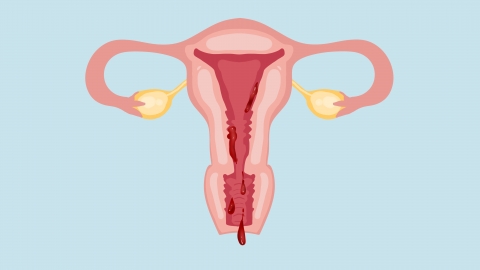What medical conditions can uterine bleeding indicate?
Generally, uterine bleeding may be a sign of various diseases. Common causes include dysfunctional uterine bleeding, endometriosis, endometrial polyps, uterine fibroids, and cervical cancer. Detailed explanations are as follows:

1. Dysfunctional Uterine Bleeding: Endocrine disorders causing abnormal ovarian function can disrupt the normal shedding of the endometrium, leading to uterine bleeding. This manifests as irregular menstrual cycles, variable menstrual flow, and bleeding of varying duration, closely related to hormonal fluctuations.
2. Endometriosis: When displaced endometrial tissue invades the uterine muscle layer or other areas, it may interfere with normal uterine contractions, causing increased menstrual flow and prolonged menstruation. Some patients may also experience postcoital bleeding, which is associated with congestion and shedding of displaced tissue.
3. Endometrial Polyps: These fragile polyps have a rich vascular supply and are prone to irregular bleeding, often presenting as intermenstrual bleeding or postmenopausal bleeding. Bleeding is usually light and may appear only as blood streaks in vaginal discharge, related to polyp ulceration or infection.
4. Uterine Fibroids: Fibroids may cause uterine bleeding when they interfere with uterine contractions or increase the surface area of the endometrium. This may manifest as increased menstrual flow, prolonged menstruation, or spotting between periods. The bleeding is usually dark red and lasts longer than normal menstruation.
5. Cervical Cancer: Cancerous tissue is fragile and prone to ulceration and bleeding. In early stages, it often presents as contact bleeding, such as bleeding after sexual intercourse or gynecological examination. In later stages, irregular vaginal bleeding may occur, with gradually increasing blood loss, related to vascular invasion by the tumor.
To promptly identify the cause of uterine bleeding, it is recommended to monitor the frequency, amount, and associated symptoms of bleeding and undergo regular gynecological examinations. Maintaining healthy lifestyle habits and avoiding excessive fatigue in daily life can help maintain reproductive health.




